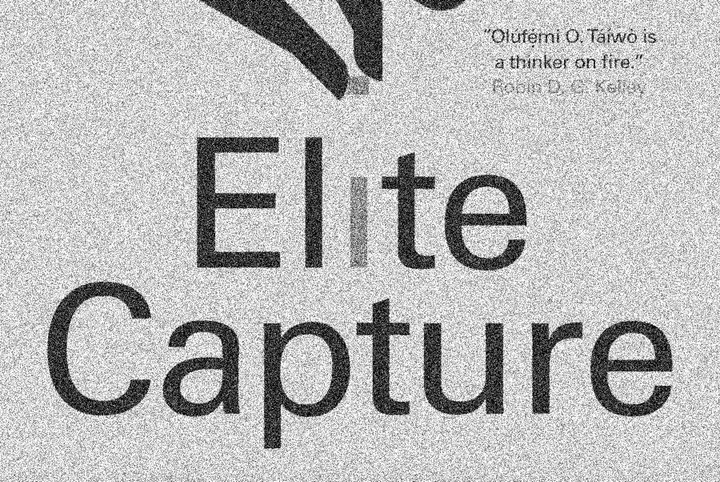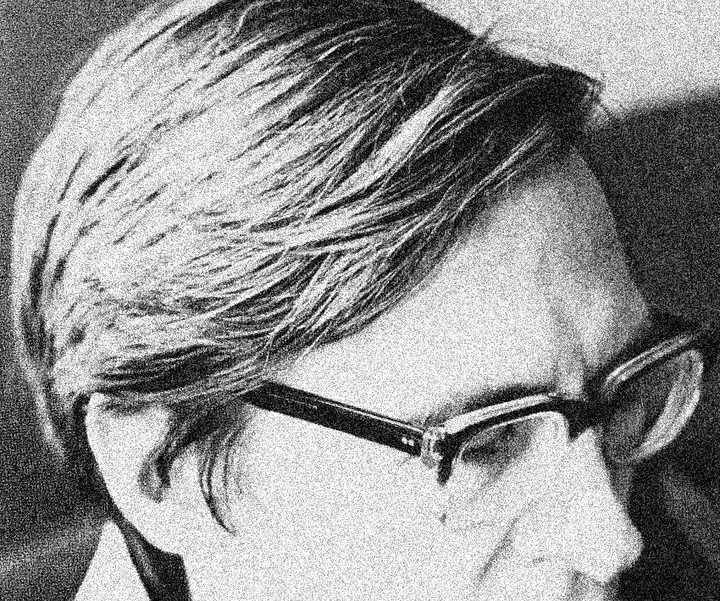Pseudo-Leviathans
John Gray believes the modern state is a new totalitarian entity promising not freedom but the much lesser good of “meaning” through security and a progressive identity. But the “new Leviathans” are much weaker than he lets on.

Review of John Gray, The New Leviathans: Thoughts After Liberalism (London: Allen Lane, 2023).
John Gray is one of the most well-known and prolific British critics of liberalism. Previously Professor of European Thought at the London School of Economics, he now writes mostly for the New Statesman. As the limitations of global capitalism from the 1990s onwards became more apparent, Gray developed from a relatively niche academic commentator on Mill, Hayek, and other figures in the classical liberal tradition to a more public figure pessimistic about the possibility of freedom and progress. Perhaps his most famous book, Straw Dogs: Thoughts on Humans and Other Animals, is an unremittingly nihilistic dismissal of any differences between humans and other animals and a stern rejection of any notion of human progress.
Gray’s latest book, The New Leviathans: Thoughts After Liberalism, continues this critique of liberalism. While the book suffers from overlong biographical digressions into the lives of various people who suffered during the Soviet era that add little to the central arguments, it is a cogent examination of the distortions and failings of contemporary liberalism. Gray’s account of today’s “hyper-liberalism,” as he terms it, is particularly useful. In his view, the central premise of this hyper-liberalism is that we are self-making “mortal gods”, in that everyone today is capable of defining their own identities in ways entirely free from prior historical constraints. He sees this extreme emphasis on unbounded individual self-definition as the logical endpoint of an individualism that asserts each human being as sovereign over themselves. The contemporary politics of identity is thus about individual self-making, and this includes making selves that occupy certain positions in society. As Gray summarizes, “self-definition [is] a battle for power in which words are the weapons of choice.”
What makes Gray’s reflections here more valuable than other critiques of “identity politics” or “the woke movement” is that he locates these phenomena within a specific historical development: for Gray, hyper-liberalism has its origins in the decay of liberalism, not its perfection. He notes that hyper-liberalism is not a variant of Marxism (“cultural” or otherwise), nor is it a version of postmodernism. Rather, it is the revolt of the professional bourgeoisie and a tool that overproduced elites can use in very competitive environments. He sees this revolt as occurring primarily in the domain of culture and the struggle over language, and he draws his views on the overproduction of elites (too many highly credentialed candidates, too few elite positions) from the work of Peter Turchin, among others. As Gray asserts, “Surplus elites are waging a war for economic survival in which hyper-liberal values are commodified in the labour market. Woke is a career as much as a cult.”
Hyper-liberalism as the ruling ideology today is for Gray a fairly parochial conflict within the Anglosphere, which looks to justify a failing variety of capitalism and allow a small group of surplus elites to battle for their position in society. It is not a vehicle for universal emancipation, but only “an ersatz faith for those who cannot live without the hope of universal salvation inculcated by Christianity” and premised on a myth of self-creation without limitation. In this reviewer’s opinion, this is an accurate and damning assessment of a dominant ideology of the contemporary moment.
It is ironically in his use of the work of Thomas Hobbes, who provides the ostensible theoretical basis of the book, that Gray is on less sure ground. Hobbes is best known for his influential theorization of power, sovereignty, and human nature in Leviathan (1651), with his account of sovereignty recently finding new relevance to understanding the contradictions of the Brexit crisis in Britain. In Taking Control: Sovereignty and Democracy after Brexit, a book I co-authored with Philip Cunliffe, Lee Jones, and Peter Ramsay, we contend that Hobbes’ value for thinking through the present is specifically in his insight that without political representation, there are only many people who form a multitude. Hobbes did not believe that this representation had to be democratic, but he did understand that composing a singular people (“the people”) does require some process of representation. We contend that through a long process of state transformation and elite withdrawal, the mechanisms in contemporary Britain for representing the people no longer exist, and indeed it is necessary to understand the contradictions and crises of the Brexit era through this absence.
Gray uses Hobbes in a rather different way, drawing on the famous image of the Leviathan, that gargantuan biblical sea monster that stands in for the state. Gray asserts that states today are becoming the “new Leviathans” of his book’s title because they use their awesome power to promise not liberal freedoms but protection from danger. For Hobbes, the only thing that prevents the war of all against all is a sovereign powerful enough to cow all citizens into good behavior: the Leviathan. For Gray, the new Leviathans promise safety but also foster insecurity, deliberately perpetuating the artificial state of nature from which they purportedly provide salvation. This claim requires a bit of unpacking.
For Hobbes (as well as for other thinkers such as Rousseau), the state of nature is a condition that precedes the creation of the state. Gray instead sees us as having travelled through the era of the state—“liberal civilization has passed away”, as Gray puts it—and into an era when artificially created states of nature exist without a functioning social order. In the present conditions of artificial, post-modern states of nature, Gray asserts, the state has moved from a post-Hobbesian liberal promise of freedom to the degenerated promises of the ruling progressive ideology, which offer only identity and security. As Gray puts it, our new Leviathans offer “meaning in material progress, the security of belonging in imaginary communities and the pleasures of persecution.”
Here we can see the influence of Gray’s pessimistic reading of contemporary hyper-liberalism: by privileging the making of identity, hyper-liberalism is the ideological justification for states’ movement away from ideals of freedom and toward identitarian divisions of society. In this situation, freedom is too much to promise; basic state protection in a situation of warring identitarianism is all we can hope for.
Gray’s thesis—that the modern state is a new totalitarian entity promising not freedom but the much lesser good of “meaning” through tenuous security and a progressive identity—is arresting. It correctly points to two essential contradictions at the heart of contemporary hyper-liberalism: that an increased focus on individual identity tends to undermine any collective one, and that the state fosters an identitarian division from which it also offers protection. However, his thesis misses a crucial aspect of the way in which contemporary states work. As Gray notes, for Hobbes the strength of a sovereign and the strength of its subjects cannot be detached from each other. As Hobbes puts it, “It is a weak sovereign, that has weak subjects.” Given the breakdown of the mechanisms of political participation and representation across Western states, Gray’s “new Leviathans” are historically weak states that arguably do not even constitute leviathans in the first place. Hobbes’ most pointed insight today is that without the processes of constituting ourselves as a people to be ruled, our states cannot be sovereign, and cannot make themselves into the truly awesome Leviathans that Hobbes had in mind. Rather than being watched over by new Leviathans, we find ourselves in an era of restrictions and censorship that are unsupported by any basic authority, like the kind generated by a represented and sovereign people: “authoritarianism without authority.” In this sense, our age is even more contradictory and fragile than Gray allows.
Accurately locating the origins of today’s dominant hyper-liberalism in the decay of the liberalism he once valued, it is hardly surprising that Gray’s conclusions are not positive. As with many of his books, his pessimistic predictions are delivered with a slight shrug. Gray believes that any talk about neo-feudalism is misguided—simply because modern societies do not have the cultural resources to justify a structured feudal society, and the would-be “lords” cannot offer their prospective “serfs” the protection that feudal lords gave in clientelist exchange for their serfs’ loyalty. In asserting that our societies are so degenerated they cannot even achieve feudalism, Gray’s anti-neo-feudalism is particularly bleak.
Gray’s concluding thought is that even the most doomerist accounts (usually offered by conservatives) of the “suicide of the West” are mistaken because they are similarly too optimistic: “A spectacle of self-immolation, at once tragic and farcical, is being enacted; but suicide involves a measure of self-awareness of which the contemporary Western mind is incapable.” The Italian Marxist Antonio Gramsci once wrote that the challenge of modernity is to live without illusions and without becoming disillusioned. Gray takes great pleasure in removing the illusions of contemporary liberalism, of which there are a great many. But he also seems taken with the power of our new Leviathans, an illusion that fuels his disillusionment.
■
George Hoare is a writer and researcher based in London; his most recent book is the co-authored Taking Control: Sovereignty and Democracy After Brexit.



